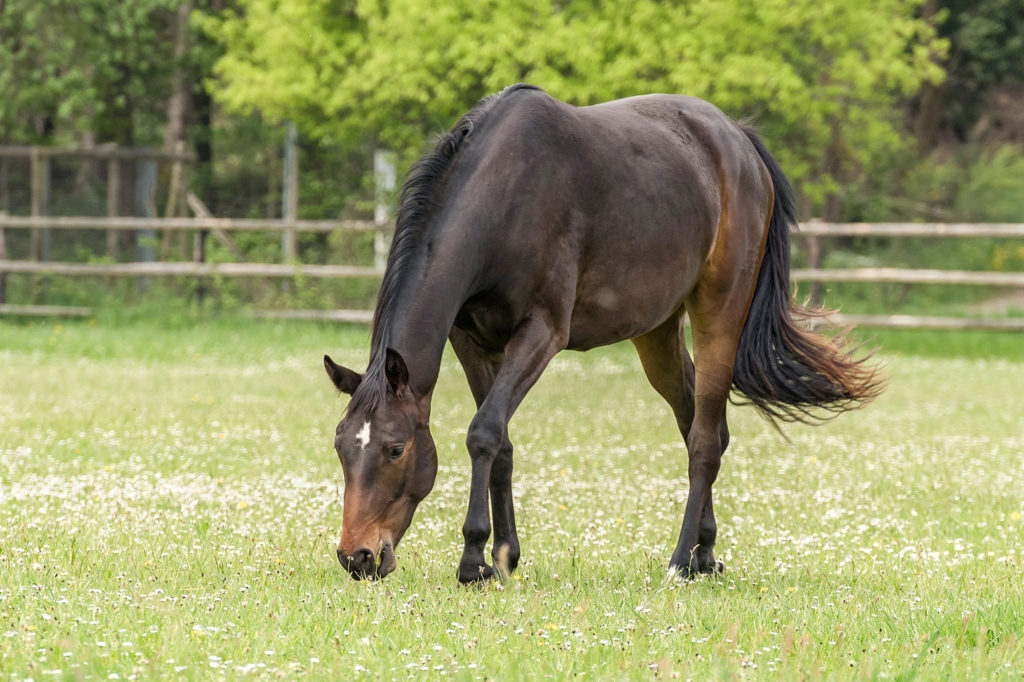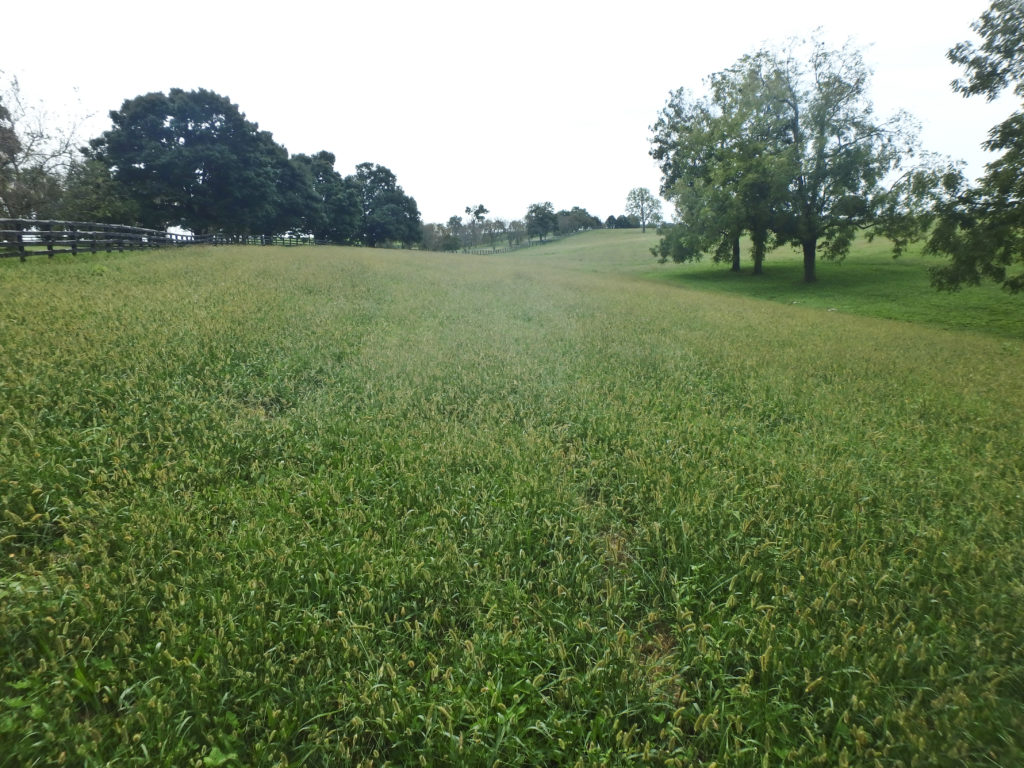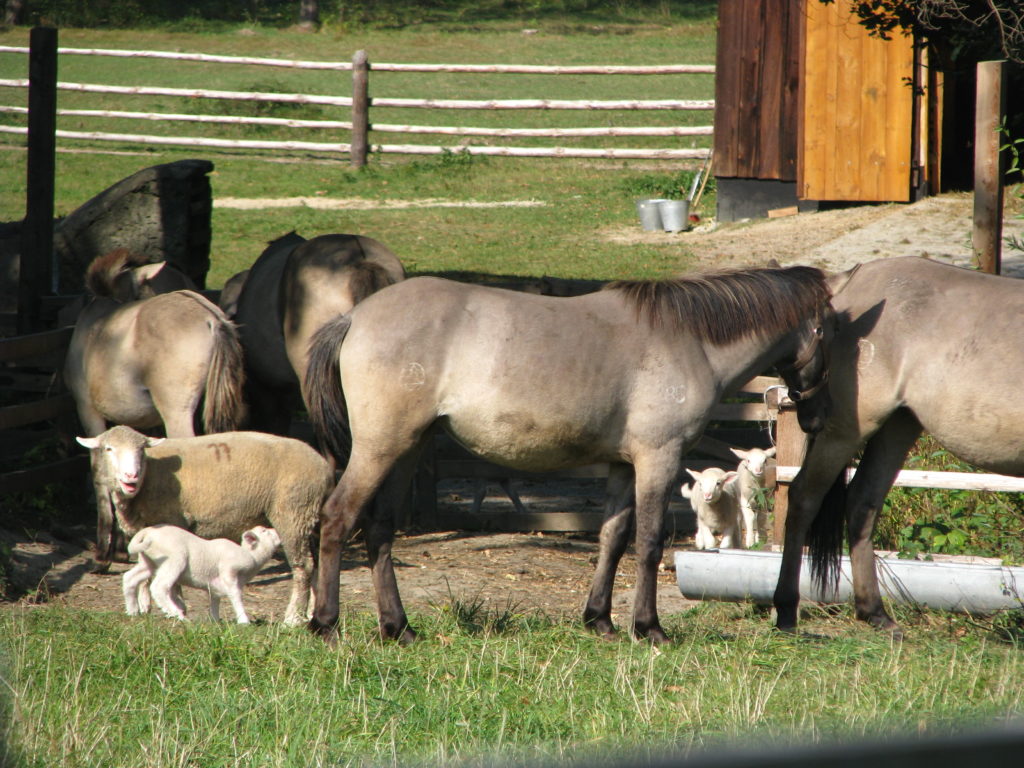
Lack of Rain Starting to Strain Kentucky Agriculture
Just six or seven months ago, Kentucky was dealing with overabundant rainfall and soaked pastures, but now things are close to bone dry. Kentucky needs rain, and fast.

Just six or seven months ago, Kentucky was dealing with overabundant rainfall and soaked pastures, but now things are close to bone dry. Kentucky needs rain, and fast.

Fall is a good time to evaluate the quality of your horse pastures, because it is easy to see which weeds were most prevalent and uncontrolled during the summer and are now large and seed-producing.

Most cool-season horse pastures should be fertilized with nitrogen in the fall to boost root reserves and extend the grazing season.

While using goldfish to help clean water troughs is popular among horse owners, one researcher shows it’s ineffective.

A University of Minnesota graduate student investigated types of bale wrap and their effects on alfalfa baling time, dry matter losses, nutrient values, moisture levels, cost, and bale value. Here’s what she found.

Can decreasing pasture size also decrease your horse’s weight even if turnout time doesn’t change? A researcher investigated and offers management tips based on her results.

Buttercups in horse pastures can cause problems, but their acrid taste usually deters livestock from grazing. Here’s what to know.

One study presented at the 2019 Equine Science Society Symposium found the answer. Also learn about how vibration plates really affect horses, if GPS accurately measures horse speed, and more.

Experts offer tips for mud management on farms and how to keep horses and their hooves healthy when faced with copious wet weather.

Horses with grassy turnouts graze all day, so they don’t need extra forage when they’re stalled at night, right? Not so fast, our nutritionist says. Here’s why.

Here’s a brief look at “green” horse keeping techniques you can implement on your farm this summer.

Find out which flowers, shrubs, and trees you should avoid when sprucing up your barn this spring.

Broadleaf plants, such as dandelions and ragweed, aren’t the only weeds that can infiltrate pastures. Here’s how to control grassy weeds that can be prominent in summer pastures, including crabgrass, yellow foxtail, and nimblewill.

Are your horses getting the nutrition they need? Find out during Equine Nutrition Awareness Month, brought to you by The Horse and ADM Animal Nutrition.

Researchers recently studied how horses and sheep interacted with each other and used pasture resources—plants, water, and shade.

Learn why this deworming technique doesn’t have an antiparasitic effect in horses.
Stay on top of the most recent Horse Health news with
"*" indicates required fields